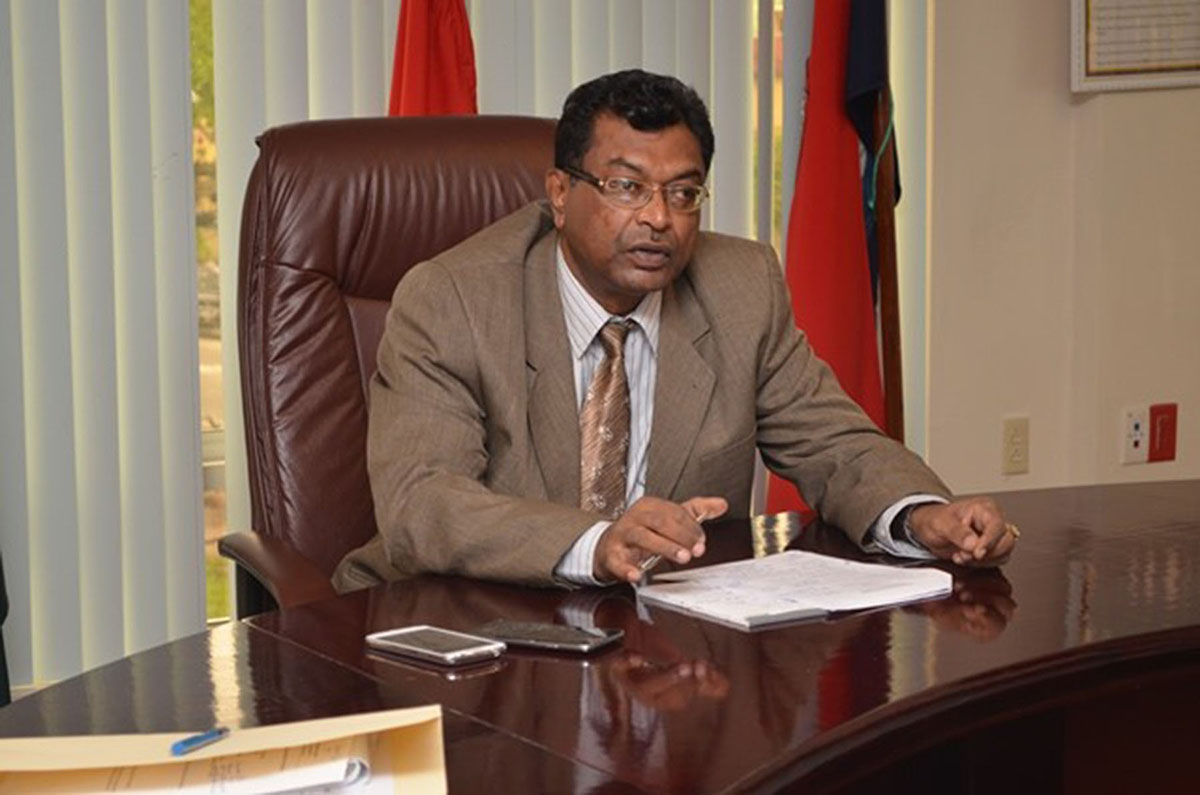Public Security Minister Khemraj Ramjattan is in favour of raising the legal age for the purchase of alcohol to 21, although he admits it could be a hard sell to the populace.
“I’ll certainly support that but of course you are gonna get a lot of Guyanese who are 18-year- olds saying, ‘We must be free to choose… because we are adults…why can we vote but we can’t get a drink.’ You will have a lot of arguments,” Ramjattan said on Friday, shortly after the closing ceremony for a police training programme had ended.
At present, the laws prohibit anyone under the age of 18 from buying alcohol, although it also says that anyone over 16 can buy or be given alcohol if it is to be consumed with a meal provided in part of the licensed premises that is not a bar. The laws also prohibit anyone under the age of 16 from being in the bar of any licensed premises. Although a significant number of sellers do not adhere to the laws, monitoring and enforcement is difficult for authorities.
Meanwhile, Ramjattan also told reporters that he is willing to work along with the ministers of Social Cohesion, Health and Education to assist in bringing the alcohol abuse situation in the country under control.
“It is a disease in this country,” he stressed, before also noting that enforcement of existing regulations to curb excessive drinking is needed.
He pointed to the current 2 am curfew on the sale of alcohol at bars. “I was only implementing the 2 o’clock curfew. It was there all the time,” he said. The enforcement of this regulation to stop of the sale of alcohol from 2 am resulted in Ramjattan being heavily criticised.
The Private Sector Commission (PSC)’s call to ease the 2 am curfew to 4 am on weekends and holidays was not entertained by Ramjattan, who maintained that he was simply enforcing the law.
“There are lots of other laws that have to do with young children… the shop keepers can’t sell to young people and a number of other things, including the hours and when a person is feeling inebriated and seen by the bartender, the bartender can send him home,” Ramjattan added.
“What we gotta do now is enforce those regulations. Alcoholism is a big problem in Guyana and it has led also to consequential challenges, [such as] bad driving, which has resulted in deaths and so many other things…loss of limbs and damage to property.
It has also led to tremendous domestic violence in homes and then, of course, that has other consequential issues, like the child not being brought up properly, daddy beating up mommy and a number of things…,” he pointed out.
A 2016 Household Drug Survey had found that there was a prevalence of alcohol binge drinking among 64.2% of male respondents and 46.3% of female respondents. It did, however, also find that first use was on average at 18.7 years.
In the wake of a doubling of drunk driving cases in 2015, President David Granger had assured Stabroek News last year that his government was very concerned about excessive drinking and the effects it was having on the country.
He had described alcohol abuse as “one of two evils” that the country has to contain and assured that, over time, measures would be put in place to deal with it.
Social Cohesion Minister Dr. Norton, while at the helm of the Health Ministry, had told this newspaper that there was no need to make a special effort to see the harm alcohol abuse is causing in Guyana.
“We just have to look at our road accidents and we will see the harmful effects of alcohol… road deaths are one of the most blatant harmful effects. It [alcohol] will cause violence, both interpersonal and domestic violence, and would include injuries, not only from traffic accidents but also in the workplace, emotional distress and we know this can lead to depression and which results in the main cause of suicide and economic instability where persons find themselves in more financial difficulties because of the purchase of alcohol,” he had said. “In the interest of public health, the ministry can control access to alcohol through a policy, which will include the government monopolisation of the business, limiting the hours and days for the sale of alcohol and enforcement of the minimum purchasing age,” he had added.
The policy that Norton spoke of is yet to be developed.
Last September, while acknowledging that not much has been done in respect of a defined policy, Norton had said that the adoption of some international best practices is the approach that government would be following.
He identified the reduction of the availability of alcohol by increasing taxes as one such approach. He had expressed certainty that the taxes can be increased and said that it has to be done. “It is something I would advocate for, I will push for and I think I will get the support for,” he had said, while adding that had plans to begin a series of consultations with non-governmental organisations, such as PAHO/ WHO.
PAHO Representative to Guyana Dr William Adu-Krow previously said that programmes are needed to promote responsible drinking as well as to steer people away from dependency.
“Alcohol is a major issue; I have raised it several times. Normally the response that I get is that, ‘Oh, we have our world renowned rum and therefore you cannot say too much about alcohol,’” Adu-Krow had said.
Adu-Krow while advocating for responsible drinking, had said that instead of just imposing punishment, effective programmes need to be created and implemented to steer people away from a life of alcohol.






